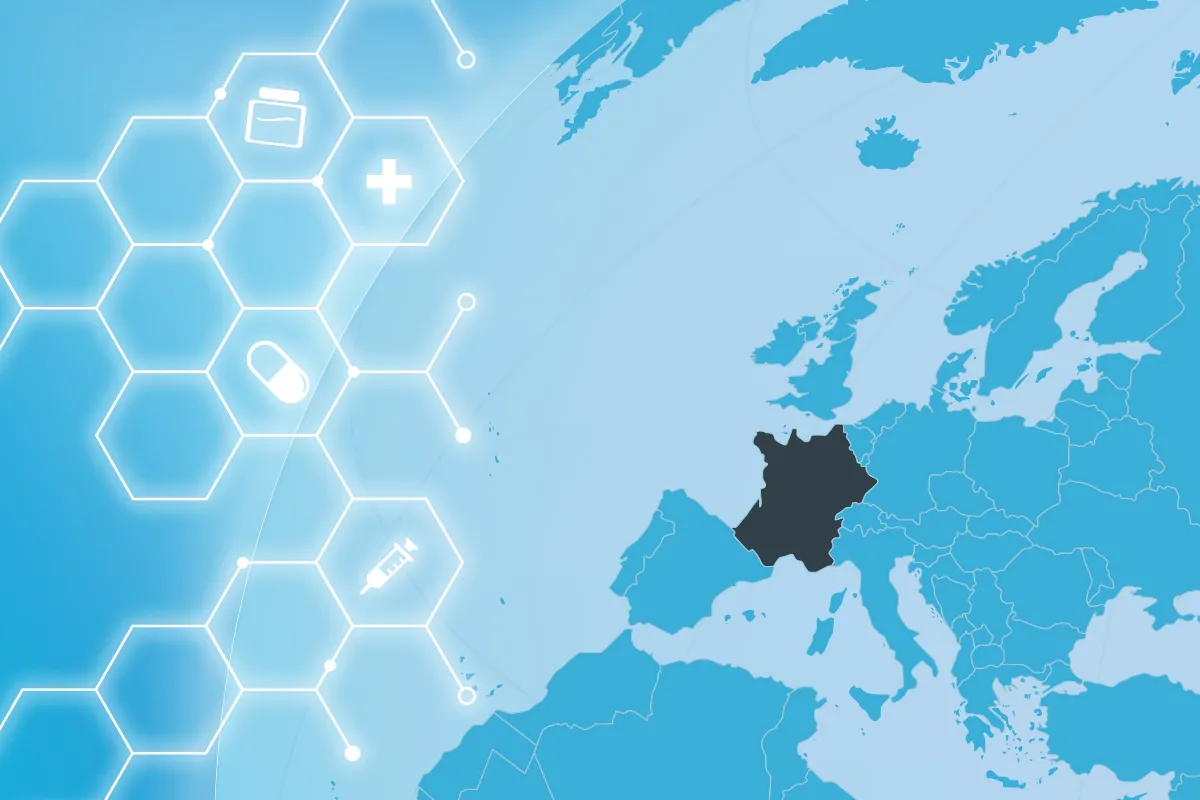The Digital Health (DH) solutions market in France has transformed significantly in recent years. The COVID-19 pandemic accelerated the rapid adoption of telemonitoring solutions and digital therapeutics. Our experts highlight recent access and reimbursement changes in France, positioning the country as a global leader in digital health reimbursement maturity.
In 2016, Diabeo, a telemonitoring solution in diabetes, became the first digital health app to receive a positive CNEDiMTS health technology assessment (HTA). This milestone paved the way for further innovations, such as Moovcare Poumon, a monitoring and diagnostic solution for lung cancer patients, and Diabeloop’s DBLG-1, an insulin titration software connected to a CGM and an insulin pump, to secure LPPR funding (List of Reimbursable Products and Services), respectively in 2020 and 2021. Back then, LPPR was the only common-law (i.e., broad and long-term) reimbursement pathway for patient-centric digital health solutions.
The typical evidence requirements for LPPR funding are, however, too stringent for most digital solutions. For example, there is a preference for RCTs as evidence. Additionally, a health economic dossier is required if claimed improvement vs. comparator is at a minimum moderate (i.e., ASA III or better). Digital solutions also have specificities that set them apart from analogue medical devices. For instance, they can track actual patient usage and require data interoperability. Recognizing these differences, French regulators acknowledged early on the necessity to shape the P&MA environment to accommodate these technologies.
Multiple short-term selective reimbursement options have emerged for which digital solutions could theoretically be eligible. This originally included the transitory funding pathway for medical devices known as “PECT” which provides transitory funding for one year for innovative medical devices with CE marking awaiting the classic funding pathway. Another option is "Forfait Innovation” which allows early access of innovative solutions in their early stages of clinical development with a purpose to fund evidence generation. Additionally, “Article 51” provides another option – it’s a law that enables the ad hoc reimbursement of innovative care organization experiments, which may include digital solutions. However, none of these options were specifically designed for digital solutions.
The first pathway established specifically for digital health reimbursement was the ETAPES program, introduced in 2014. This program piloted temporary reimbursement for remote patient monitoring in five indications heart failure, renal insufficiency, diabetes, respiratory insufficiency, and implantable cardiac prosthesis. ETAPES ended in July 2023 but paved the way for the creation of a dedicated common law pathway for telemonitoring: LATM, launched in June 2023.
Evolving reimbursement pathways
June 2023 marked a critical milestone with the creation of two new digital-specific pathways in France:
LATM (List of Medical Telemonitoring Activities)
LATM features generic reimbursement lines for five of ETAPES’ legacy indications and there is also the potential to create branded lines for telemonitoring solutions in new therapeutic areas, such as oncology. LATM is expected to boost telemonitoring adoption by offering an attractive compensation to both the digital solution manufacturer and the healthcare provider responsible for remotely monitoring patients. Key requirements for eligibility include CE marking, ANS safety and interoperability standards compliance, and GDPR compliance.
Example: As of May 2024, Resilience PRO, a patient monitoring solution for cancer patients undergoing systemic treatment, is the first and only DH solution benefitting from reimbursement via a branded line under this pathway. Through LATM, the manufacturer receives fixed monthly reimbursement prices of either €50 or €73.33 per patient, depending on the tumor stage (including 20 percent VAT).
PECAN (Early access reimbursement for DH solutions)
Inspired by the German digital access pathway DiGA (Digitale Gesundheitsanwendungen), PECAN was established to enable the temporary (one year) reimbursement of digital therapeutics and telemonitoring solutions. This allows time for the submission dossier for permanent reimbursement to be finalized, either through the LATM (telemonitoring) or LPPR (DTx) pathway. PECAN replaces PECT for digital solutions.
Example: October 2023 saw the first DH to receive reimbursement under PECAN. Techcare, a telemonitoring solution for cancer patients from Cureety, was reimbursed at a published price of €50 per patient per month, including VAT.
The price setting of telemonitoring solutions under PECAN was communicated in October 2023. It mirrors the LATM price grid in a simplified way (€50 per month, including VAT, regardless of the type of outcome enabled). More recently, a decree published on April 22, 2024, unveiled the pricing mechanism for DH solutions with a therapeutic purpose (DTx), capping maximum compensation at €780 per patient per year (including VAT) with an initial 3-month reimbursement of €435 (including VAT). This shows the determination of payers to make the French market attractive to digital health innovators.
Looking ahead
The DH P&MA environment is continually evolving to match the specificities of these solutions. The introduction of new reimbursement pathways, along with clear interoperability and safety criteria, gives clarity and transparency to digital health solutions manufacturers and promises a positive trajectory for the future of digital health in France.
However, even though market access structures are formalizing, evidence requirements are still quite stringent for DH solutions seeking reimbursement in France. For instance, Continuum+ Connect, an oncology telemonitoring solution, was denied LATM access in July 2023 due to lack of demonstrated superior effectiveness compared to standard of care. Presage Care, a telemonitoring solution aiming to prevent unplanned hospitalization for patients with chronic diseases, was also denied access through PECAN in October 2023 due to insufficient data on its potential clinical benefits and progress in the organization of care.
In addition to evidence requirements, each country has its own unique set of technical standards, potentially posing a challenge for companies seeking global expansion for their DH solution(s). DH solution manufacturers must also consider the technical requirements specific to France, such as technical stability, usability, accessibility, interoperability, and data security. These requirements are outlined in the 5th edition of the Agence du Numérique de la Santé (ANS) doctrine that includes ANS key interoperability standards, French health data hosting, ANS data security key standards, etc.
To navigate these challenges and unlock reimbursement opportunities in the French market, DH solution manufacturers need to:
- Design an offer model that aligns with payer requirements and meets technical specifications
- Ensure their solution drives patient engagement, stickiness, and retention as new access pathways condition reimbursement on actual usage
- Build an evidence plan that pragmatically meets payer requirements in France and beyond
If you are facing these challenges and are curious to hear more about our experience in the DH solution access space in France and beyond, please reach out to our experts.
Thanks to contribution by Ines Hassayoune!
Better Market Access
The role of better market access is to remove any hurdle that prevents or hinders patients from receiving available treatments. In the right place, and at the right time.
Today, the impact of market access spans clinical development, regional commercial activities, patient engagement, and post-launch compliance. Yet, for many pharmaceutical companies, planning for commercialization only truly begins when a drug has been submitted for approval — far too late in the process.
Get to know our insights on local trends, regional and global developments and global to local excellence.





